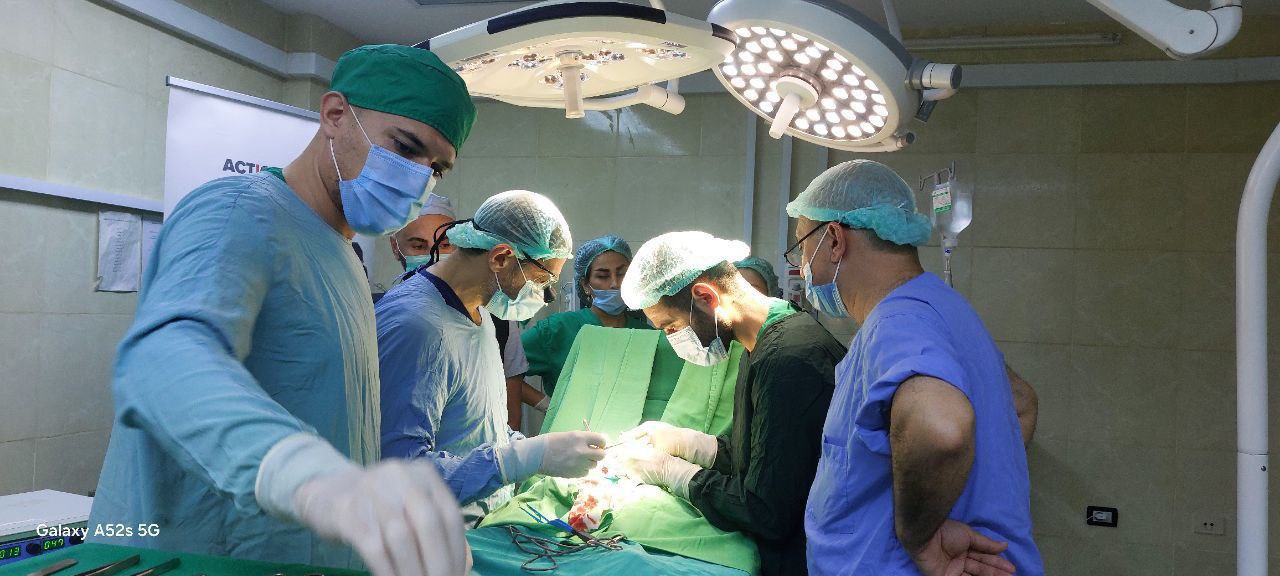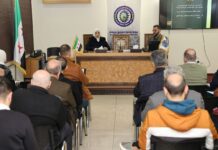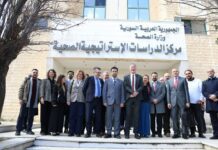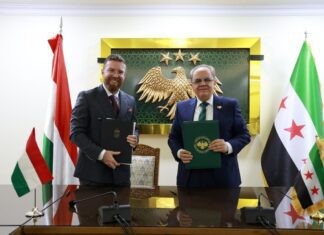 As part of its ongoing efforts to improve access to medical care across all Syrian governorates, the Ministry of Health—working in collaboration with the Atlantic Humanitarian Relief organization—has launched a wide-ranging medical campaign titled “Restoring Hope.”
As part of its ongoing efforts to improve access to medical care across all Syrian governorates, the Ministry of Health—working in collaboration with the Atlantic Humanitarian Relief organization—has launched a wide-ranging medical campaign titled “Restoring Hope.”
Over 78 specialized doctors from multiple fields are taking part in the initiative, providing free services including pediatric and obstetric surgeries, eye surgeries and corneal transplants, general surgery, endoscopy, maxillofacial and congenital defect surgeries for children, pediatric catheterization, and dental operations for individuals with special needs.
The campaign, which will cover six governorates—Damascus, Aleppo, Homs, Idlib, Daraa, and Tartus—is set to run for several days. The Ministry of Health emphasized its commitment to closely monitoring the procedures and ensuring that as many citizens as possible benefit from the program.
Doctors from Around the World in Syria
In a related effort, the Ministry of Health has also launched a second major medical initiative under the slogan “Recovery: Doctors from Around the World in Syria.” This campaign, organized in cooperation with the humanitarian organization Action for Humanity, brings together 42 doctors from diverse specialties to perform advanced surgical operations and provide expert medical consultations.
The campaign will reach the governorates of Damascus, Homs, Hama, Latakia, and Tartus, focusing on complex medical cases in the fields of general surgery, orthopedics, urology, spinal surgery, pediatrics, ophthalmology, cardiology, plastic surgery, and mental health.
According to the ministry, both initiatives aim to improve the overall healthcare situation in Syria, deliver high-quality medical services free of charge, and strengthen the national healthcare system’s capacity to meet growing medical needs.
Training, Knowledge Exchange, and Capacity Building
Abdulmaghith al-Qarati, director of the Action for Humanity program, explained the campaign focuses not only on providing direct medical care but also on developing local medical expertise. He said all necessary surgical supplies have been provided and that practical training is being conducted for resident doctors in Syria through live operations, lectures, and public scientific seminars.
Qarati noted this collaborative approach ensures sustainability by combining humanitarian service delivery with professional development, helping Syrian doctors gain hands-on experience with advanced surgical techniques.
Both of these campaigns demonstrate the Ministry of Health’s ongoing commitment to expanding free medical services, improving hospital capacity, and reinforcing public health resilience throughout Syria.








